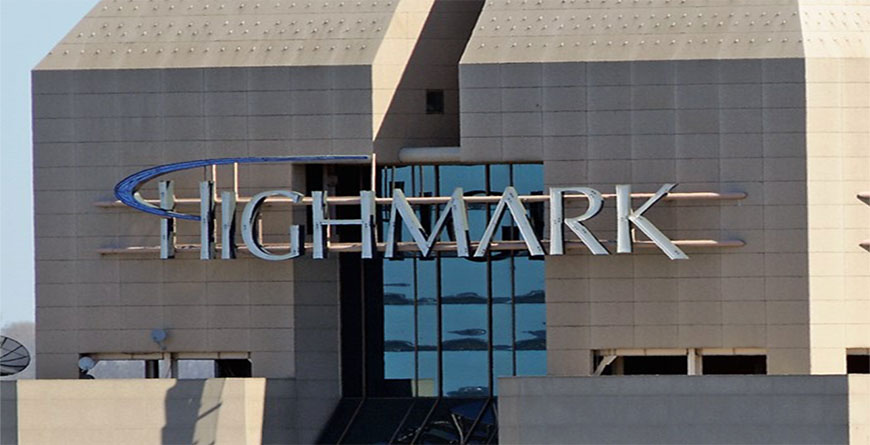
HIGHMARK HEALTH JOINS PUSH TO TAKE EMPLOYEE DISPUTES TO ARBITRATION
PITTSBURGH, PA, SEPTEMBER 20, 2015: Highmark Health is now requiring non-union employees to give up their right to sue over work disputes in favor of using a neutral arbitrator. The policy does not apply at this time to Allegheny Health Network; its vision unit, HVHC Inc; or independent contractors, said spokeswoman Lynn Seay.
The Alternative Dispute Resolution Program is designed “to streamline our approach to resolving legal disputes,” according to an internal Highmark document about the policy that was obtained by the Post-Gazette.
Other insurers have adopted similar policies; Aetna, for example, requires new hires to agree to arbitration as a condition of employment, while UPMC and UPMC Health Plan do not have such a requirement.
A scholar who specializes in the study of consumer and employment arbitration said this is not good news for employees.
“It’s streamlined because employees are stripped of all kinds of procedural rights that would be available in court,” said Imre Stephen Szalai, a law professor at Loyola University in New Orleans. “It only serves the interests of the employer, not the employee.”
Mr. Szalai cited a 2011 study of 3,945 arbitration cases by Cornell University researcher Alexander Colvin that found employees won in arbitration 21.4 percent of the time. Studies from the late 1990s found employee win rates in the 33-36 percent range when the dispute landed in federal court and 50-60 percent when decided in state court.
Mr. Colvin’s analysis also found arbitration awards were substantially lower than cases decided in court.
Ms. Seay said Highmark Health and its companies have few disputes with employees that end up in court litigation. ”But even with those few, the process can be time consuming and expensive for all parties.” Under its policy, Highmark Health will pay the costs of arbitration, minus a $200 filing fee.
She said the new alternative dispute resolution policy was not unique to Highmark, noting companies such as Coca-Cola and United Healthcare use versions of it.
Ms. Seay said since the policy’s inception in July, “98 percent of eligible employees willingly signed the agreement, which comes to nearly 10,000 individuals.” A total of 10,700 Highmark Health employees are affected.
The policy calls for using an arbitrator chosen off a list of nine names from the neutral American Arbitration Association, and “is meant to be quicker and less costly than going to court,” the document says. “It also tends to be less formal, less intimidating, more convenient, and gives both of us more control over who will be deciding our covered disputes.”
Michael Clark, spokesman for the American Arbitration Association in New York City, said the fact that the employee and employer choose the arbitrator benefits both parties. “You don’t get that in litigation. You get whoever is next in line on the bench.”
Signing the agreement is a mandatory part of employment, the Highmark Health document states. While those refusing to sign will not be fired, they will be given a version of the agreement “that will not require your signature to be effective.” In other words, by continuing to work there, workers are agreeing to submit to the arbitration process.
Employment lawyers say they find the policy’s compulsory nature troubling, even as they acknowledge more companies are adopting such policies in light of Supreme Court rulings allowing them.
“This is a very big issue for all practitioners on the plaintiff side in employment rights,” said Christian Bagin, an attorney with Wienand and Bagin, Downtown and chair of the Western Pennsylvania Employment Lawyers Association.
Typically, he said, the work disputes that come into play involve discriminatory acts, such as racial or gender discrimination or harassment. “You have very little bargaining power in the first place, and even less if you’re not financially secure,” he said. With mandatory arbitration, “They’ve got a way to keep that all private so it will never see the light of day.”
Had this policy been in place earlier, noted Mr. Szalai, the public likely would have never learned that former Highmark President and CEO Kenneth Melani was suing the insurance company for wrongful termination or that a former supervisor had filed a class-action suit against Highmark regarding overtime wages, a case that ended with a confidential settlement in 2014.
Preventing an employee from pursuing a class-action suit is the number one reason that companies decide to impose mandatory arbitration, Mr. Szalai said.
The Highmark document says the mutual arbitration agreement is governed by the 1925 Federal Arbitration Act, but Mr. Szalai said court rulings have altered the original intent of the law. While the law was first designed to arbitrate disputes between businesses, he said, more recent Supreme Court rulings have broadened that to allow mandatory arbitration in employment matters.
Bills to prohibit mandatory arbitration policies for employment disputes have been introduced in Washington yearly since 2007, but none has made it out of committee. Meanwhile, because of the court rulings, “The fact that these are not negotiated is not generally a successful defense” for employees, said employment lawyer James W. Carroll Jr. of Rothman Gordon, Downtown.
Mr. Carroll believes an employee with a solid case can get a fair hearing in arbitration but allowed that “companies are not doing this because it benefits the employee. They’re doing it because they think it helps them.”
Steve Twedt: stwedt@post-gazette.com or 412-263-1963.




